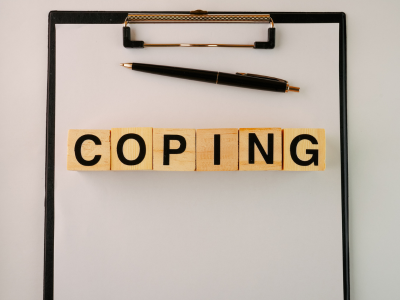Anxiety is a prevalent mental health condition that affects millions of individuals worldwide, yet its complexities often go misunderstood. In this comprehensive blog post, we aim to shed light on anxiety, providing insights into its causes, symptoms and holistic management strategies. Whether you're personally struggling with anxiety or seeking to support a loved one, we invite you to explore the multifaceted nature of this condition and discover empowering ways to navigate its challenges with resilience and hope.
Understanding Anxiety: Unraveling the Layers
Anxiety is more than just feeling nervous or worried; it's a complex interplay of biological, psychological and environmental factors. At its core, anxiety involves an exaggerated response to perceived threats, triggering a cascade of physiological and emotional reactions that can feel overwhelming and debilitating. From generalized anxiety disorder (GAD) to panic disorder, social anxiety and specific phobias, anxiety manifests in various forms, each with its unique set of symptoms and triggers.
Recognizing the Symptoms: From Physical to Emotional
Anxiety can manifest in a myriad of symptoms, ranging from physical discomfort to cognitive distortions and emotional distress. Common physical symptoms include rapid heartbeat, shortness of breath, muscle tension and gastrointestinal disturbances. Emotionally, individuals may experience persistent worry, fear of losing control, irritability and difficulty concentrating. Sleep disturbances, fatigue and avoidance behaviors are also prevalent among those grappling with anxiety.
Exploring the Underlying Causes: From Genetics to Environment
The root causes of anxiety are multifaceted and often intertwined. While genetics and neurobiology play a significant role in predisposing individuals to anxiety disorders, environmental factors such as stress, trauma and life transitions can exacerbate symptoms. Additionally, imbalances in neurotransmitters like serotonin, dopamine and GABA contribute to the dysregulation of mood and anxiety responses, further complicating the picture.
Holistic Management Strategies: Nurturing Mind, Body and Spirit
Managing anxiety involves a multifaceted approach that addresses the underlying factors contributing to the condition while promoting overall well-being. From conventional therapies like cognitive-behavioral therapy (CBT) and medication to holistic modalities such as homoeopathy, mindfulness and lifestyle interventions, there are various tools and techniques available to support individuals on their anxiety journey.
Coping Mechanisms for Everyday Challenges: Practical Tips for Resilience
In addition to formal treatment approaches, cultivating coping mechanisms for everyday challenges is essential for managing anxiety effectively. Mindfulness practices, deep breathing exercises, progressive muscle relaxation and grounding techniques can help individuals regulate their emotions and reduce physiological arousal during moments of distress. Establishing healthy boundaries, maintaining a balanced lifestyle and nurturing supportive relationships also play a crucial role in promoting resilience and emotional well-being.
Thriving Beyond Anxiety: Embracing Growth and Transformation
While anxiety can feel overwhelming, it's essential to recognize that recovery is possible and growth often emerges from adversity. By embracing self-compassion, fostering a growth mindset and seeking support from trusted professionals and loved ones, individuals can embark on a journey of healing and transformation. Through resilience, self-awareness and a commitment to self-care, it's possible to not only manage anxiety but also thrive in life's challenges with newfound strength and resilience.
Embracing Hope and Healing
In conclusion, anxiety is a multifaceted condition that requires understanding, compassion and holistic support. By unraveling its layers, recognizing its symptoms, exploring its underlying causes and embracing holistic management strategies, individuals can navigate their anxiety journey with resilience, hope and empowerment. Remember, you are not alone and support is available. Together, we can break the stigma surrounding anxiety and foster a culture of empathy, understanding and healing for all.

